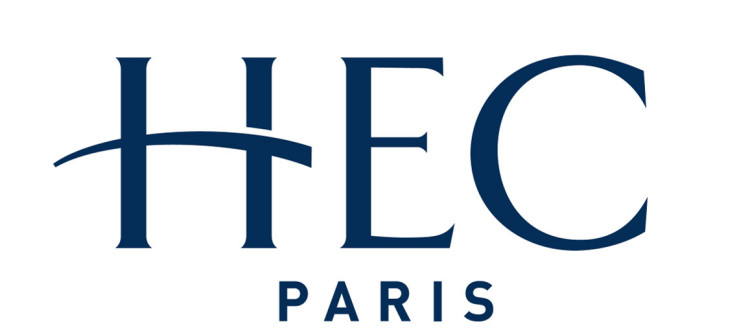- Strategy
Is Strategy a Relevant Concept?
Gérard de Maupeou explains why strategic thinking is still a relevant managerial discipline in a volatile world
Strategy is a very familiar word, commonly used on a daily basis within every company, whether small or big. However, when teaching strategy and asking seasoned managers how they would define this concept, I have always been struck by the variety of the answers I get and how vague they are most of the time.
At some point, I even have the feeling the word strategy eventually translates, according to a witty remark from Jean Cocteau, into “Since all these mysteries are beyond us, let’s pretend we are organizing them.” Are then the concepts behind that ‘buzz’ word nothing other than a way to post-rationalize and justify some managerial, but still human, imperfect decisions? The science of decision-making, another academic discipline, actually shows us all the cognitive and educational biases which prevent us from making rational and well-grounded decisions.
This perception is somehow reinforced by the current economic environment, often qualified as being more and more volatile, uncertain, complex and ambiguous, thus compromising the relevance of any long term strategic plan. Adding to that the irruption of digital ‘barbarians’, players who disrupt the dynamics of most of the well-established markets, introducing new rules of the game, one might consider the strategy discipline as an out fashioned managerial tool of the ‘old world’.
In my opinion, these arguments are, however, the fundamental reason why I consider mastering the strategic thinking discipline is becoming a ‘must’ for any manager having a say in the future of their company. When looking at the six key drivers of the business world, we can observe the following:
- Since human beings no longer rely on self-sufficiency to satisfy their needs, each individual, or groups of individuals behave simultaneously as producers and consumers, exchanging goods and services with the objective to maximize the value of what they have to trade;
- Except under some specific circumstances, producers compete against each other to attract customers and get the most efficient access to the resources needed to produce and or serve those customers. This is how they maximize the value they create on their side, i.e. their profits;
- Simultaneously, customers encourage this competition, as long as it allows them to optimize the cost to benefits ratio of what they are willing and able to pay, i.e. their perceived value
- Therefore, as in any competitive environment, the winners, on the producers’ side, are those who are able to simultaneously out strip their competitors in the minds and hearts of the consumers to gain increased market share and to perform more effectively to get the resources needed to access and serve these customers;
- The dynamic equilibrium of an exchange based ecosystem implies that each player (customers and producers, at any stage of the value chain) derive a positive value from these exchanges. Value creation and ‘fair’ value sharing is then at the heart of this dynamic;
- Of course, this idealistic equilibrium is never fully reached, as every single player has a natural tendency to seek how to distort the value share to his advantage. Whether by infringing the regulatory environment, or by leaving the burden of its activities ‘externalities’ to the collectivity thus destroying value for others, or, more virtuously, by rearranging and improving the efficiency of the different resources they select and allocate to perform what they want to achieve thereby creating value both for themselves and the collectivity.
As the ultimate purpose of the discipline of strategy is to help managers to make the best decisions in order to maximize their companies’ performances and make them durably successful, we can then argue that strategy is, by essence, action oriented. Which means that any manager whose role is to contribute or make some decisions which engage the future of the organization they are working for should develop their strategic thinking capabilities to fulfill their duties.
Actually, strategy, sometimes also called ‘business policy’ covers three tightly intertwined domains, respectively:
- Business Strategy, which answers the question of how to out beat the competitors in the eyes of the consumers in a given field of activity;
- Corporate Strategy, which is about the choice of those businesses and geographical markets in which the company should compete and how it can effectively achieve such moves, whether on its own or partnering with some others;
- Strategy Implementation, which is how, practically, a company should successfully and speedily implement such moves.
Company executives who foster their creative strategic thinking skills are also in a much better position to translate their strategic decisions into a ‘vision’ of what will be the future and the ambitions of their company, around which their teams and different stakeholders can be more easily mobilized.
As put by one participant of our MOOC Strategy@HEC Paris, ‘I attended the Strategy@HEC Paris online program at a time when I was considering launching my new corporate real estate company in Dakar. My business plan was based on the assumption I should develop my activities both in the construction and the promotion sectors. The strategy courses opened my eyes. I was near to make a fatal decision, considering to be vertically integrated, as there were already so many construction companies in the market. I waived this idea and decided to focus on my activities in the promotion sector, where I have some competitive advantages, and to leverage on the already fierce competition existing between construction companies to contract at the best conditions for me.’
Strategy is then, even more than before, the ‘hot’ topic managers and executives should be familiar with to foster their managerial skills.
ARTICLES YOU MIGHT LIKE
BOOK REVIEW
A provocative new book reveals the downside of strategic and organizational change and the benefits of stability
DEVELOPING LEADERS QUARTERLY MAGAZINE AND WEEKLY BRIEFING EMAILS


































